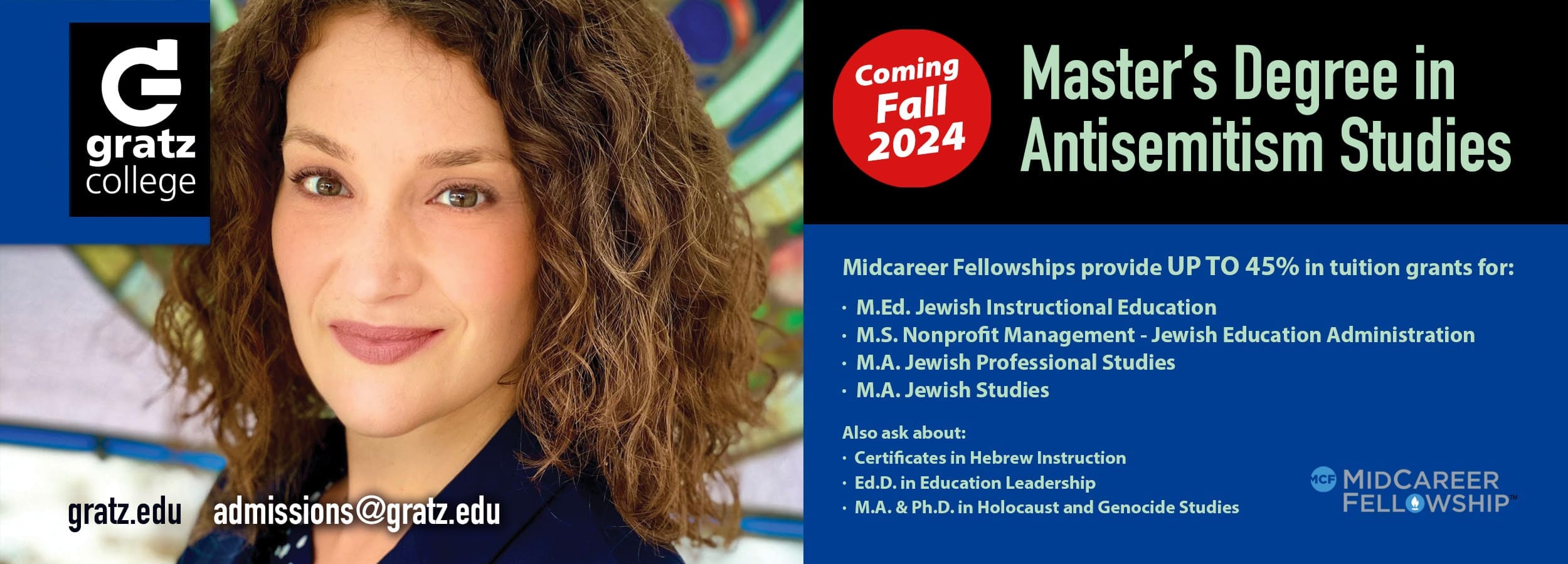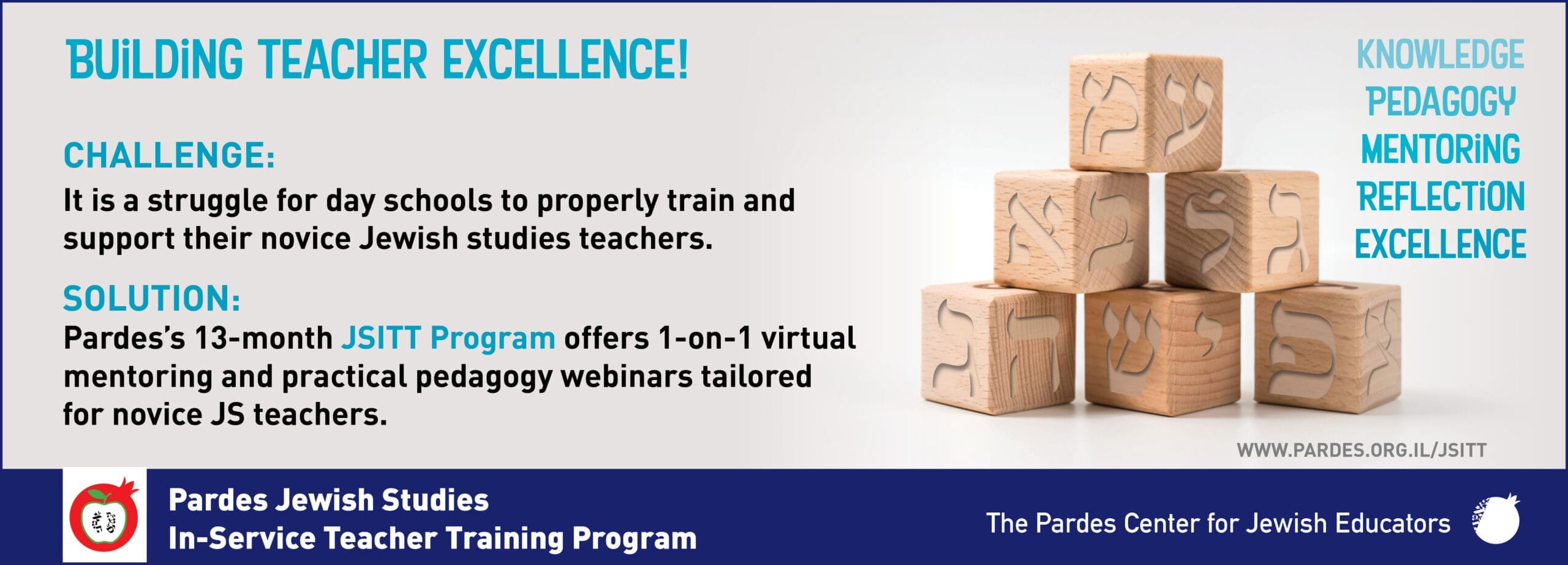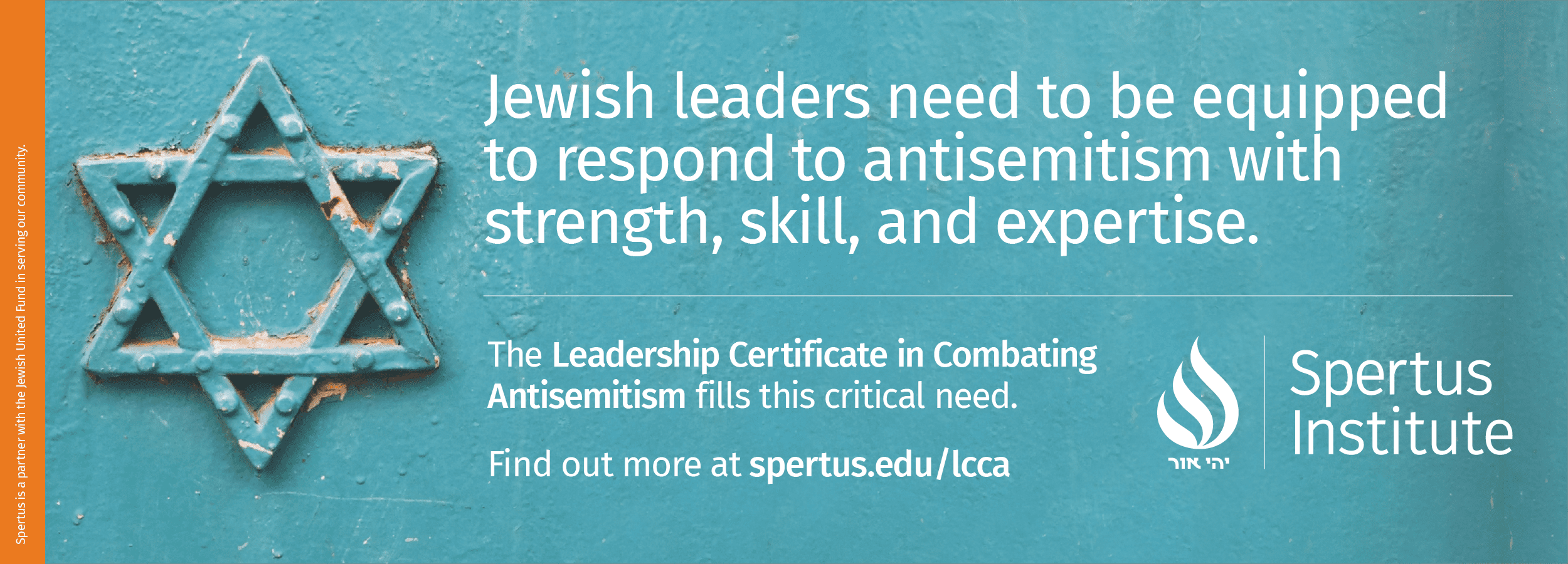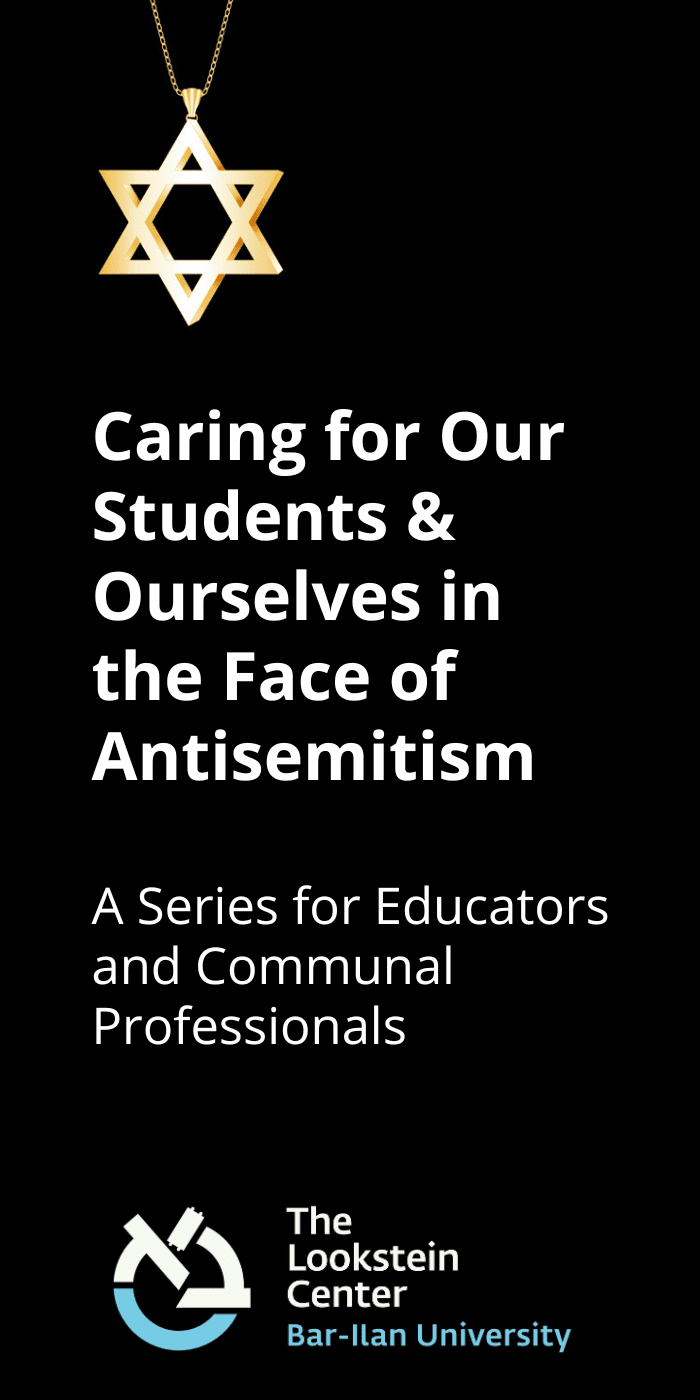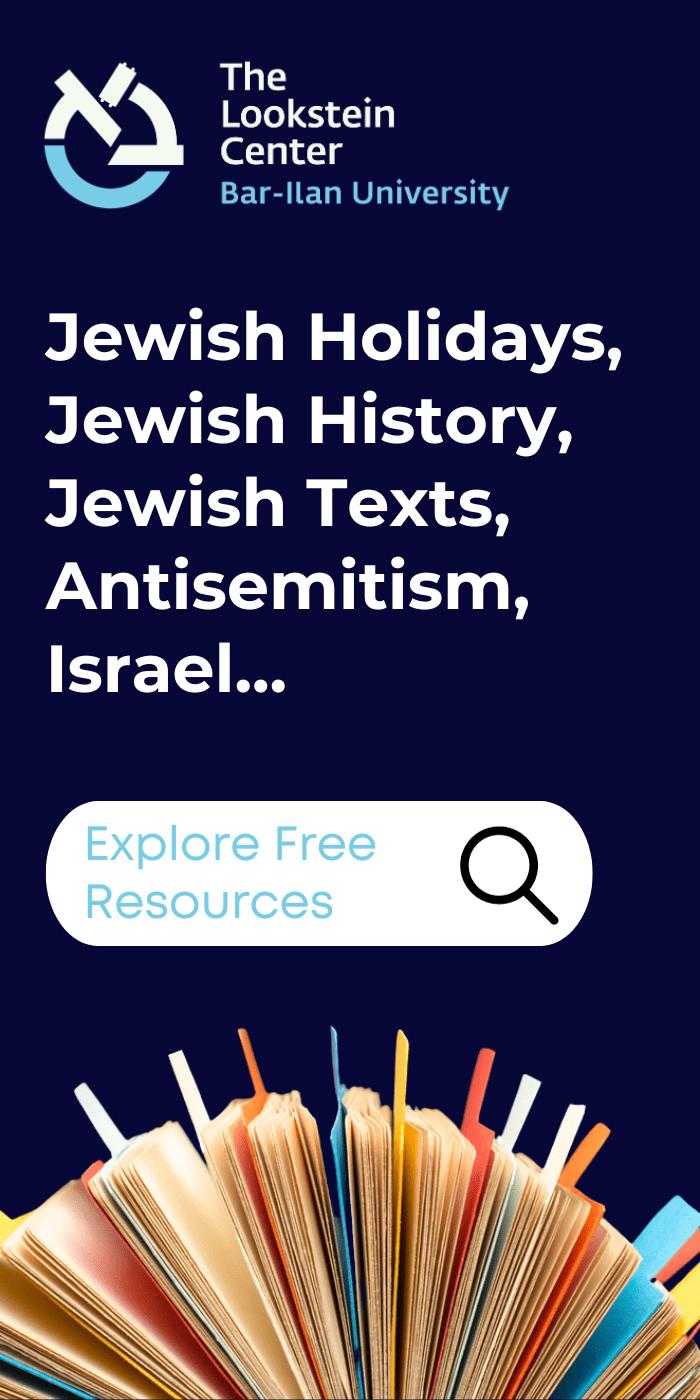Proud, Progressive, Zionist: An Interview With Sara Liss 📄
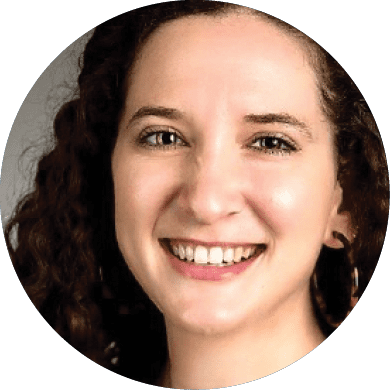
Sara Liss is a Senior Legislative Attorney for New York City Council, where she serves as Counsel to the Committee on Health and the Committee on Mental Health, Disabilities, and Addiction. She has also served in a wide range of political offices and campaigns, including in the administration of President Barack Obama. Sara is a devoted public servant, a 4th-generation Bronx resident, and a proud graduate of NYU and Benjamin N. Cardozo School of Law. Sara currently serves as the President of the Board of Zioness.
The following article was originally published in the Fall 2021 Jewish Educational Leadership issue, Jewish Education Amidst Rising Antisemitism. It is being re-released in Winter 2024 in the aftermath of October 7th.
Jewish Educational Leadership: Tell us about Zioness.
Sara Liss: Zioness is a movement of Jewish activists and allies who are unabashedly progressive and unapologetically Zionist. Our whole goal is to ensure that there is always a space for Jews and Zionists in the progressive movement and in the progressive world, which is where most American Jews naturally find themselves politically anyway.
Can you speak about how this got started?
Sure. For anyone who’s been in the progressive world, and by progressive world, I mean, sort of more the left flank of the Democratic Party in America. Anyone who’s been in this space has definitely started feeling some tension, some antagonism, some discomfort with being visibly Zionist or Jewish, and this has all worsened over the last ten or so years. The first time these issues started being noticed and discussed on more mainstream platforms was at the end of the Obama presidency and during the first Trump campaign. In the summer of 2016, the Movement for Black Lives adopted a manifesto calling Israel an apartheid state and accusing it of genocide, which was extremely painful for the millions of American Jews who care deeply about the fight for racial justice. Later that fall, there was a protest in support of the Sioux Tribe against the construction of the Dakota Access Pipeline, during which people were waving Palestinian flags in support of “Indigenous peoples.” Of course, I think most people know about the antisemitic, anti-Zionist leadership of the Women’s March, who declared repeatedly that “Zionists cannot be feminists.” Then in June 2017, the Dyke March in Chicago—a march of left-wing people, mostly LGBTQ people and their allies—actually kicked out three Jewish lesbians who were marching with a rainbow pride flag with a Jewish star in the center, which they felt represented their full selves.
Amanda Berman was watching this all unfolding, as a person who had always been an activist for social justice causes and was also a proud, Jewish Zionist, and was just devastated. She had been feeling something wrong for a while, but she realized that there was no organization in the Jewish communal landscape prepared to address this problem from a place of authenticity, and this series of events pushed her to do something. So when the Chicago SlutWalk announced that it was endorsing the policy of the Dyke March, and banned Jewish stars as “Zionist symbols of racism and oppression,” Zioness was born. They printed up some flyers and posters and they had some folks show up at the SlutWalk with Amanda, not to protest the event but to support it—while refusing to be kicked out for being Jews or Zionists. While it was definitely seen as provocative, it ended up generating a serious dialogue which they felt was really productive.
Over the course of the next few months, they started getting active on social media, got lots of attention in the Jewish press, and just found that there were so many Jews who reached out and said, “Where have you been? I’ve been waiting for this. I have been feeling politically and ideologically homeless for so long.” They felt this sense of relief that they weren’t alone after having felt very uncomfortable in progressive spaces for a long time. Since then, Zioness has morphed into this great national organization that has more than a dozen chapters and thousands of members around the country. We’re still growing, we’re a startup. But there’s a lot of enthusiasm and a ton of work to be done.
You say there had been a growing sense of tension and discomfort in progressive spaces for a while. Can you say more about that?
There is this narrative that the Israel-Palestine conflict is very simple. There’s a powerful militant colonizing oppressor, the Jews, the Israelis, the white and wealthy people, against this oppressed people of color, who are indigenous to the land whose land was taken from them—and Western forces like Britain and the US are forever insuring their oppression. This narrative has been around for a long time, but I think it’s really caught on like fire and been amplified in the last ten or twenty years. In our view, what could be more progressive than Zionism, the liberation movement for the most historically oppressed people in the world? The reality is that despite our socio-economic status in America, which is overall generally one of financial comfort and enfranchisement—and I’m not ignoring Jewish poverty—there is a grave existential crisis. Our history has taught us that it can all be taken away from us in a second. We understand the suffering of minorities and we understand the importance of uplifting the oppressed, and for many Jews, Zionism is the embodiment of that understanding. That’s why most American Jews identify in some way with Zionism and why the progressive movement is a natural place for Jews. But it feels recently like that progressive space has been closed off to us because of this completely inaccurate narrative lacking nuance. So, we want to ensure that there’s greater understanding and that there’s greater nuance and that people understand who Jews are and what Jews are, which is a question that almost seems like many Americans don’t really know the answer to.
How has this delegitimization of Israel impacted on you personally?
I have so many stories. I would say that I started sensing it when I was in NYU for undergrad. There had been ongoing strikes and protests when I was in college and in my senior year, this would have been 2009, there was a group of students who took over one of the faculty floors with a list of demands. Every single one of the demands related to the conditions at the school—better prices, increased consciousness of the school’s environmental impact, and other things like that. And then one of the demands was BDS against Israel. We saw that and thought, “that doesn’t make any sense. It has absolutely nothing to do with the rest of these things that they’re demanding.” The protest blew over quickly but that was my first real exposure to the fact that those whose values I would otherwise share, if not maybe their tactics, were kind of glomming on to (editor’s note: attaching themselves to) something that I found really concerning. And abhorrent.
Once I got into law school this became way more ironed out. I went to Cardozo, which is a Yeshiva University school, but the student body is very diverse. We had a few incidents where they invited some scholar to come speak about the Israel-Palestine conflict, and it was never an even conversation; they never invited somebody to represent the Zionist-Jewish side of it, it was always just to talk about the Palestinian perspective, in an anti-Israel way. I don’t think the Palestinian perspective needs to be inherently anti-Israel but I think that is often the way that it’s framed. And then it really, really, really started being obvious for me when I moved to DC after law school, and I was working as a White House intern in the Obama administration. Someone said something to me to the effect of, “Just so you know, you have to be careful about the way you speak about Israel and your Zionism,” essentially telling me that I need to either hide it or be prepared to have a lot of really uncomfortable conversations with people. That kind of put me on high alert and made me feel like I had to check my identity at the door in order to do the work I was really proud of. We were rolling out the Affordable Care Act and I’m doing this anti-gun work and felt completely connected to all these things, but in order to do that I had to hide my Jewishness or my desire for Jews to be liberated?
I remember having a really, really uncomfortable conversation with somebody in law school, who was essentially accusing me of being racist, just because I was Jewish, and she didn’t know me at all, we had never spoken. I think that if I had had that conversation, now, it would have gone very differently because I did not have the tools to have this conversation with her. I had no idea how to address it. And I just felt really ashamed and embarrassed as a Jew. Like it would just make my life easier if I could just hide that part of myself.
That’s really powerful. I imagine many others have similar kinds of experiences. When you say that the Zionist perspective, the Jewish perspective, should always have a voice at the table, how do you envision what that looks like? And in what spheres?
What it looks like is that no Jew should ever feel like they have to hide any aspect of their identity in order to participate in progressive activism, frankly, in order to participate in any activism. I had something antisemitic happen to me in New York City about two years ago, and ever since then I’ve always had some kind of Jewish star or Hebrew lettering, because it is important to me that when I walk into any space, which nine times out of ten is a progressive space, I want them to know that I’m a Jew, and that I’m a proud Jew. And then we can go from there. Whatever conversations that we have, I don’t want anyone to feel like they need to take off their yarmulke.
On a more global scale it means that Jews are included in activism and in progressive causes. And what often happens is that when it comes to antisemitism and condemning antisemitism, it feels like people who are otherwise so quick to condemn racism or homophobia are suddenly silent. It feels like when it comes to Jewish lives, the approach is suddenly “all lives matter.” There was an incident in Congress, where Congresswoman Ilhan Omar made that comment, “It’s all about the Benjamins,” with real antisemitic tropes, but they couldn’t even pass a resolution condemning her without also throwing in all other forms of bigotry. Why couldn’t they just call her out on it? We just had a similar thing with the Iron Dome funding where many of the people defending it were saying, “it’s a defense system, it saves Jewish and Palestinian lives.” Why isn’t it enough that it saves Jewish lives? Why are we so embarrassed to say that? And then with all that happened during the latest conflict in Gaza, we heard a lot of people feeling like if they spoke out against antisemitism, they also had to qualify it with the statement that they support Palestinian lives. If somebody is getting punched in the face for being Hasidic in Brooklyn, what does that have to do with Palestinian lives?
Okay, so can you describe, one or two other kinds of activities that Zioness does to promote its agenda?
One thing that we’re very focused on is training our chapters. I’ll make up an example. Let’s say that many activists in the Chicago chapter are working on gun reform issues. What this could look like is that they’ll have a webinar or some kind of training session about how to enter this activism space as a Zionist and as a Jew, and how to make sure that they know there’s what to do if they’re confronted with anti-Zionism in that space. How they can walk into that room as a proud Jew and a proud Zionist who also is really intent on achieving gun reform in Chicago. More broadly, when there is something like the Women’s March or the keeping-families-together marches and abortion rights marches, we will help people show up in those spaces because we care deeply about those causes. We’ll do it with posters promoting the values as Jews and Zionists. We don’t want to take away from the cause or create a distraction, but we want to make the statement that Zionists support these causes.
Do you think that the anti-Zionism that you’re experiencing slides into or is built on or otherwise connected to antisemitism?
Yes, I think it’s absolutely connected to antisemitism, Amanda [Berman] has said this a lot of times. The only way it could not be antisemitism is if you don’t believe in nationhood at all, for anyone, or you don’t believe that anyone deserves liberation, then it’s not antisemitism because that’s your general viewpoint. But if you believe that people should have a right to a homeland, or that people should have a right to indigeneity or self-determination, but you exclude Jews, then it’s very hard to believe that it’s anything other than antisemitism. Now, of course, that doesn’t mean that you can’t criticize the Israeli government. The Israeli government is absolutely allowed to be criticized and should be criticized in the same way that we openly and regularly criticize the American government. But if you’re criticizing it disproportionately or start leaning on antisemitic tropes in order to do it, then I think you’ve crossed from kind of legitimate criticism into antisemitism. Here’s a good test: if you replace the word Israel with Jew or Jewish people, and the statement sounds antisemitic, then what you’re saying is probably antisemitic. But I don’t see any space in practice between anti-Zionism and antisemitism, because almost everyone who claims to be anti-Zionist believes in liberation and self-determination for every other people.
This is a journal about Jewish education. Have you or your friends in Zioness thought about or actually gone into Jewish teen groups or Jewish campus groups and spoken to them?
We will go wherever we’re invited. We’ve been invited to college meetings, and recently Amanda debated Peter Beinart, organized by Yale students. We go into colleges, we go into communities, we speak to parents, we speak to rabbis, we speak to educators, we even had a high school intern program. In an ideal world we would have ten times the budget and ten times the staff, but we are still a startup. It’ll be a little bit more time before we can really get out into these spaces. But a big thing that we have done and are continuing to do is create a lot of resources. We have a guide for how to confront anti-Zionism in progressive spaces. I think that creating those kinds of materials could actually be really helpful in the educational context for people to talk about this issue with their students.
I’m going to push you a little. If you were contacted by the principal of a Jewish school, let’s say a high school, and they asked you to put together a program because they’re afraid of what their students are going to encounter and they’re not prepared for this, what would you focus on?
I see two kinds of kids and two different kinds of educational needs. Judaism is an ethno-religion, and most American Jews are raised with a cultural Jewish identity but not necessarily a religious one. They probably have a stronger sense of being American and probably identify in most ways more with white America, meaning they think of themselves as very protected from any form of bigotry. They feel very safe here and very accepted. They don’t know very much [about their Jewish heritage], maybe they celebrate some holidays and have been to Israel once on some kind of organized trip. The issue for them is that because they’ve been raised, most likely, on progressive or democratic values, when they first get to college, they’ve never really had to think of themselves as being a minority or what it actually means to be a Jew. Then they get to college and they hear the story of the oppressor against the oppressed, and the Israel-Palestine conflict, it’s alien to them and they buy into it. Approaching that problem is very different than maybe the one that you’re talking about, which is if you’ve been raised within a strong religious, Jewish, Zionist community and you’ve gone to Jewish schools for your whole life. You’ve definitely heard the Zionist story and received a Zionist education but it’s very unlikely that you’ve heard the Palestinian narrative. And if you have heard about Palestinians, you’ve probably only heard it in a pretty negative, or I’d argue Islamophobic, context.
I grew up going to Jewish schools and Jewish camps my whole life. I think I saw the documentary Jihad for Kids ten times, in different contexts and at different ages! And despite growing up in a liberal family and a relatively liberal community, and I definitely don’t identify with white America—I identify much more with other minority communities, I was never made to feel like I should be too safe to fully let my guard down anywhere as a Jew. But I think that even growing up in a very tolerant home and community, I think my impression of Palestinians was that most of them had bad intentions toward Jews and Israelis, and that this was a fight to the death in some ways. I think that if I was going into a Jewish school now, I would want to really arm the students, who presumably have had this Zionist education, with the Palestinian perspective, and how to talk about that in a respectful way that shows that it can coexist with the Zionist perspective. I think that is the most powerful tool to give students coming into the American college experience, because what happens now is that the students who should be speaking up—like students who we’ve sent through twelve years of day school education with a Zionist perspective—don’t have any tools or language to talk about it on the other side. This may be their first exposure to the stories of what’s happening to a lot of Palestinians, so that not giving them those tools is basically rendering them kind of useless when they get to the college campus.
This was a fascinating conversation. Is there anything you want to add?
I would say that the biggest thing that we could give to American Jews is Jewish pride and an understanding of what that means to be a Jew. So many people don’t really have an understanding of what that is, I feel like if you asked an American Jew, what is a Jew? I don’t know that you would really get a concise or clear answer from many, many people. I had a little bit of an uncomfortable conversation with a colleague of mine who isn’t Jewish. She’s a black woman who posted a few things about the Israel-Palestine conflict that had really antisemitic undertones. So I said to her, “I’m not at all trying to silence you or say that you can’t talk about or criticize the Israeli government or talk about the Palestinian perspective, but I just want you to know that these are really antisemitic tropes.” In the conversations which followed she said, “As a black woman, my existence every day is a form of protest and a form of victory that I exist here in America.” I thought, “that’s really powerful.” I think that what she said is true, but I think that’s true for Jews too. She’s saying this to me, as if I’m not the granddaughter of Holocaust survivors. My grandfather was literally a slave to the Nazis on the Russian front for two years. It’s not a competition; there’s no Olympics of oppression. The American experience for black people is very different than the American experience for Jews, and in some ways it’s a problem for us because we feel so comfortable here. But I think it’s just so important for people to understand what it means to be a Jew. And I think that’s something we maybe don’t always do a good job with.



Sara Liss is a Senior Legislative Attorney for New York City Council, where she serves as Counsel to the Committee on Health and the Committee on Mental Health, Disabilities, and Addiction. She has also served in a wide range of political offices and campaigns, including in the administration of President Barack Obama. Sara is a devoted public servant, a 4th-generation Bronx resident, and a proud graduate of NYU and Benjamin N. Cardozo School of Law. Sara currently serves as the President of the Board of Zioness.
Reach 10,000 Jewish educational professionals. Advertise in the upcoming issue of Jewish Educational Leadership.
Do you want to write for Jewish Educational Leadership? See the Call for Papers for the upcoming issue.
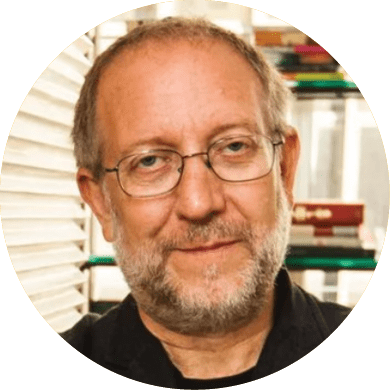

Understanding the New Antisemitism with Yossi Klein Halevi – 2024 Update 📄🎬
I think we’re experiencing a phenomenon that we can call massacre denial or massacre trivialization. And I don’t like Holocaust comparisons to Israel’s situation. But in one way I do believe that a Holocaust analogy is legitimate and that is in in how the historicity of October 7th is being treated and the uniqueness of October 7th. What makes October 7th unique is that it was not a pogrom, these were premeditated atrocities. And the purpose of the atrocities, was to instill terror. So what is happening to the memory of October 7th, the understanding of what October 7th was, is very similar to what Holocaust memory has been subjected to in large parts of the world.
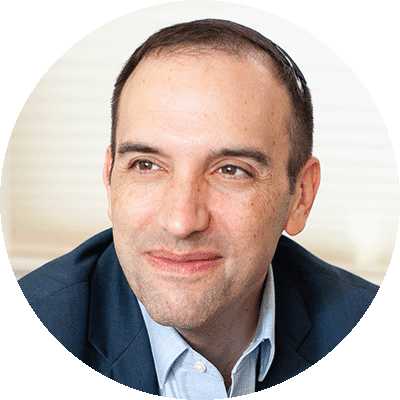

From Fear to Resilience – 2024 🎬
The whole world has changed. I feel like we’re at a historic moment for the Jewish people. This is one of the major, major dividers within the Jewish world today. Those who have never really known Jewish vulnerability and those who know it and feel a deep in their kishkes. And I think that divide has been kind of blown up right now. We’ve known through the statistics that antisemitism has been on the rise for the last many years. And I think Pittsburgh, Tree of Life, really changed in some ways the American Jewish condition. It kind of woke us up to the fact that it can happen here.
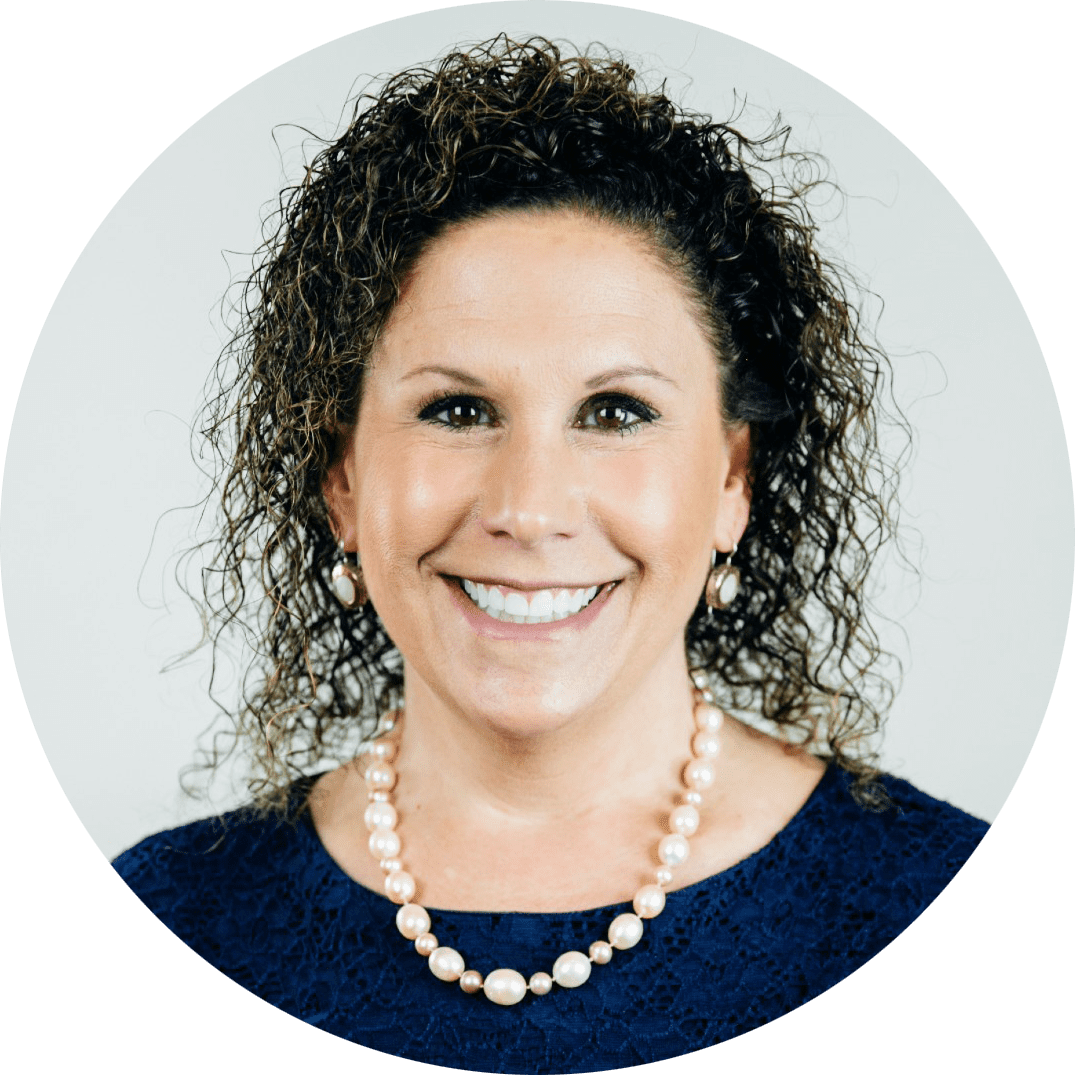

Building Jewish Strength – 2024 🎬
I think among the things that are concerning for me is that the people that I work with, and I’m in a Reform congregation, we’re a very large community with a lot of diversity within that community. I think that what is particularly concerning to me is that our people are so caught off guard and surprised. That all of the sudden in 2023, all of the sudden it’s as if there wasn’t antisemitism before October 7th. We either had our heads in the sand or we were just kind of in a position of not really acknowledging the extent to which antisemitism is still a part of the human existence. I won’t say the Jewish existence because I think antisemitism and anti- antisemitism is more than a Jewish concern.
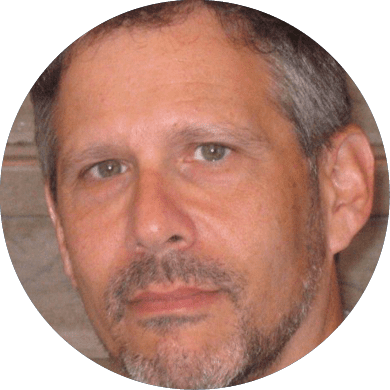

Confronting the Campus Crisis – 2024 update 📄🎬
I think what we’re seeing now is a globalization of antisemitism and it’s become a mass movement in the name of anti-Israel activism, in the name of anti-Zionism, which is not to say that anti-Zionism automatically equals antisemitism, but the way that anti-Zionism is expressed particularly now, is in an antisemitic way. One example, for instance, maybe you would a draw a Venn diagram and you would have a big circle and that big circle says criticism of Israel. Then you have another circle, which is antisemitism, and then you have a bit of an overlap. And the overlap seems to have increased recently. Why that is, is because Hamas is in itself an antisemitic organization.
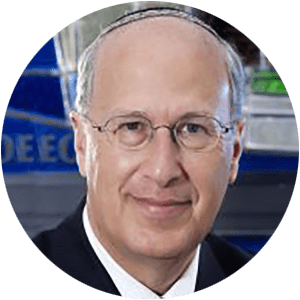

Antisemitism, Debating a Lie – 2024 🎬
The most concerning thing I find about the uptick in antisemitism is the lack of knowledge on the part of Jewish students and others about the real history of the situation. The kids don’t know how to have a cogent debate. They don’t have the knowledge. They don’t have the history to truly stand up and speak truth to lies. And that actually is the most disturbing thing. If there’s violence, it’s obviously extremely disturbing. But I’m not as worried about that as the long term issues, both on college campuses and now on high school campuses, where the lack of knowledge and the level of ignorance is so profound that I think we are in a strategically dangerous spot with our youth who don’t know.
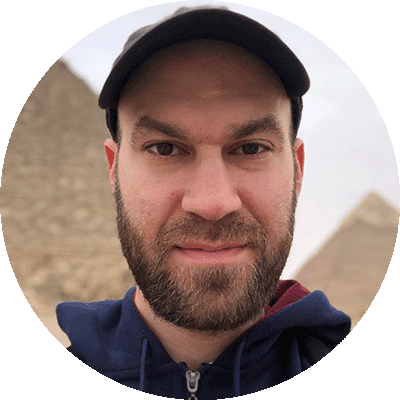

Seeing Antisemitism Clearly – 2024 🎬
The time when my thinking on antisemitism changed the most in the last five years was actually 2021, not now. In 2021, we had a similar situation on a smaller scale to what we have now, which is Israel and Hamas fighting and violence against Jews outside Israel. Hate crimes, attacks both at protests but also just on the street. And the thing that changed my thinking the most was not fighting in Israel and was not even those attacks. But it was how the reaction to those attacks from people who are most likely to stand up for minority groups who are being subjected to racism or prejudice was anything ranging from apathy to justifying or contextualizing the violence.
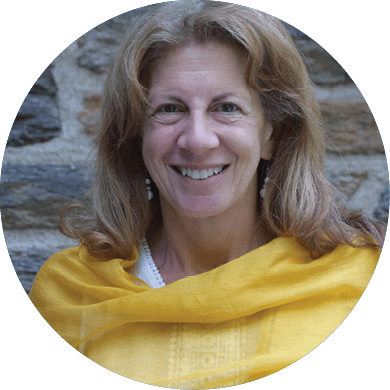

Antisemitism – So Close to Home – 2024 Update 📄🎬
I appreciate the opportunity, unfortunately, to revisit the question of antisemitism and the Jewish day school landscape. And it was almost like looking back at an innocent time to think about the Pittsburgh experience, which is what I wrote about, the proximity of my experience to the three congregations that were massacred in the Tree of Life building. At that time I definitely had it in the context of, well, I’m not surprised. I’m a child of Holocaust survivors. This is going to happen periodically. The big difference was the feeling that the world and the communities and the rational universe were very empathetic and sympathetic to what happened to the Jews in our community.
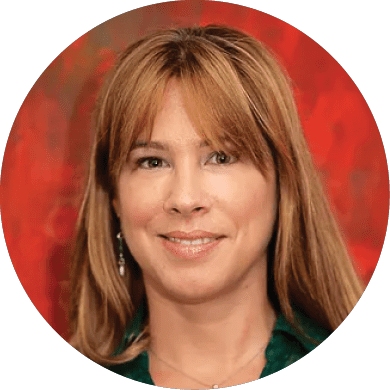

Antisemitism and Identity – 2024 Update 📄🎬
So the question was, in the last two years, has your thinking on antisemitism changed? And the answer is very straightforward. My thinking has not changed whatsoever. I knew that antisemitism is an issue, even though people around me have been minimizing and denying it and now it’s just out. It’s clear that there is bias even among people who are not necessarily antisemitic. It seems like there is a radicalization among younger people. I’m wondering to what extent education has to do with it. I got my Ph.D. here and I’ve seen the environment. There seems to be also a lot of misinformation at least on the school campuses or university campuses.
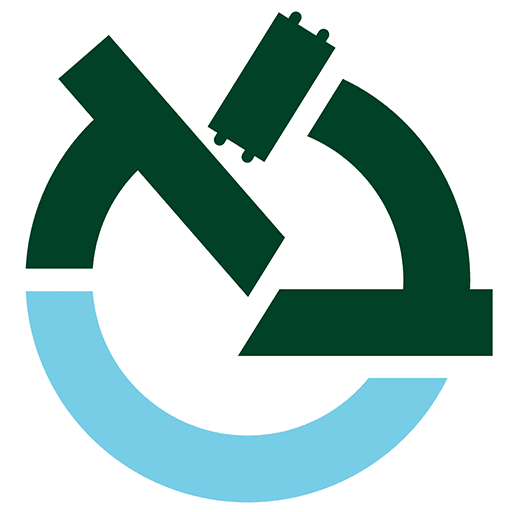

Caring for Our Students & Ourselves in the Face of Antisemitism🎬
Jewish educators are dealing with antisemitism on two levels. We are dealing with our own shock, fear, anger, and uncertainty. And at the same time, we need to be able to address antisemitism in our classrooms, camps, or youth groups. We need to help our students feel safe and supported, and we need to make sure they have some tools in their arsenal to rely upon. While there are so many questions, many without answers, there are some things that we can do right now to help our students feel safe and supported. This series of videos from The Lookstein Center at Bar-Ilan aims to give educators tools for helping our students through these troubling times.
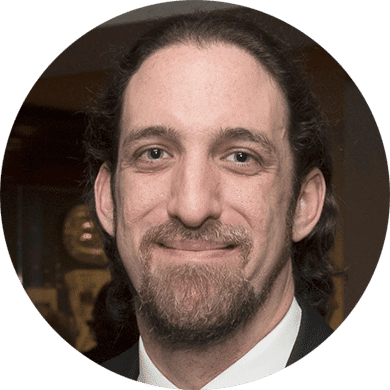

Antisemitism is Systemic, and Yet Deeply Personal – 2024 Update 📄
In the United States and across the globe, there is an all-out assault on Jews arising from the political left, political right, and seemingly everywhere in between. From virulent and overt violence to the dog whistles of antisemitic tropes, one can see antisemitism alive and growing in almost every facet of life. In a survey conducted by ADL, over 1 billion out of 4 billion people surveyed across the world harbor antisemitic attitudes. That is over 25%. As the Program Manager for Echoes & Reflections, my career is focused on helping secondary educators effectively and responsibly teach about the Holocaust and contemporary antisemitism.
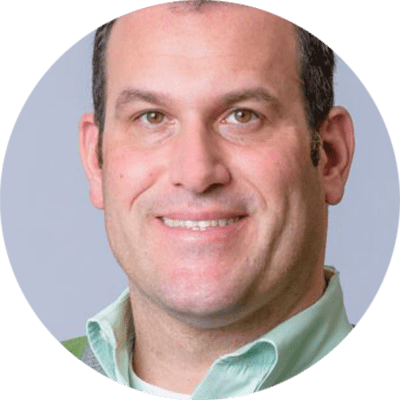

Insights From College Guidance in the Wake of October 7th – 2024 📄
I have been privileged to work at SAR High School since 2007, assisting many hundreds of graduates with the college admission process. It has been a true labor of love, helping a student discover the institution that could be their perfect match for four transformative and memorable years. Front and center in the admission process has always been a student’s growth as a Modern Orthodox Jew, with considerations like kosher food, daily minyanim, Hebrew language and Jewish studies departments, Torah learning opportunities, and Israel advocacy coming into play as much as academics and student life.
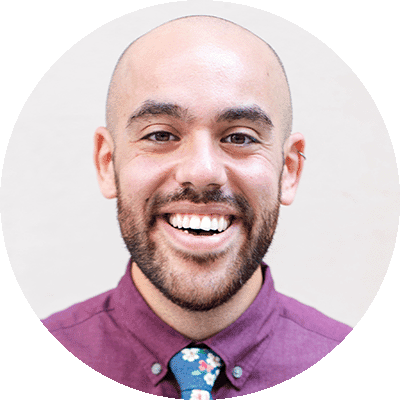

Reflections on College Guidance after October 7th – 2004 📄
This all happened at a very interesting time in the college application cycle. When the war started and we started seeing anti-Israel and antisemitic activity happening across the country, our immediate thought in the Milken college admissions office went to students applying early decision to schools, because that’s a binding contract—if you’re admitted, you have to attend. October 7th was a month before early decision, early applications were due, and we had to do triage for those students. For students who were not applying early decision the timing wasn’t as critical.


